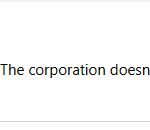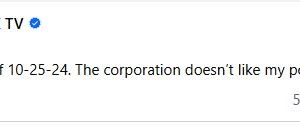
On June 22, Donald Trump told an audience of Christian conservatives in Philadelphia that he’d once urged Dana White, the head of the Ultimate Fighting Championship, to create a team of (presumably undocumented) immigrants who would be trained to fight the UFC’s regular league. Of course, Trump never elaborated on how such a league would be created or what methods would be used to enforce its compliance, leaving that to his listeners’ imaginations.
As reported by Politico’s Natalie Allison and Jared Mitovich, Trump’s supporters in the crowd later minimized the remarks as jokes, noting that this was Trump’s way of “expressing how some of these illegal immigrants coming [into] this country are hardened criminals.” As Allison and Mitovich observe, the crowd reacted to Trump’s statements with laughter and approval.
Trump repeated the statement later at a speech at Temple University in Philadelphia. According to The Washington Post, White confirmed that Trump had in fact made those statements to him, but also contended that they were “a joke.” The media apparently agreed, and the statements were swiftly consigned to that gaping memory hole where Trump’s many thousands of outrageous utterances inevitably disappear.
As most of us realize by now, this was nothing unusual for Trump. He consistently exploits the use of crass humor to convey cruel, autocratic, and often violent aspirations that might otherwise be deemed offensive and unacceptable. Trump’s followers not only expect this use of humor, they actually crave it because it solidifies their allegiance to him. Through such statements Trump conjures up a common enemy for his crowds and supporters to focus their resentments and grievances on: liberals, Democrats, women, immigrants, in fact anyone who might object to being singled out for ridicule and debasement. These are his perennial targets, the ones who by definition are not in on the joke.
These statements are usually delivered at his rallies and often appear in the form of belittlement or demeaning slanders that serve as a secret handshake between Trump and his supporters. As they were in Philadelphia, these “jokes” are routinely met with boisterous laughter and applause. To an outside observer they may seem more mean-spirited than comedic: a politician going off the rails with provocative cheap shots and self-parody. But to his rapt, attentive followers there is something quite different going on.
Possibly the most telling example of Trump’s weaponized humor is what occurred on Jan. 6, 2021. As Zeeshan Aleem, writing for MSNBC observed, “Jan. 6 marked the culmination of how Trump has profited from operating in a comedic register: It might sound counterintuitive, but the fact that Trump made people laugh—both intentionally and unintentionally—is key to understanding both his trajectory and potency.”
In fact, Aleem compares Trump’s delivery to a performance as opposed to a rally:
[W]atching the speech itself, Trump could be mistaken for attempting to put on a stand-up comedy show, seeking to elicit laughter as much as he attempted to whip up rage. Gazing at his fans gathered in the Ellipse, Trump mused that Biden had “80 million computer votes” and sarcastically panned the president-elect for campaigning “brilliantly from his basement.” In the manner of a comic, Trump made constant references to the crowd and expressed concern about whether they’d get “bored.” He reprised recurring bits (“Where’s Hunter?”); did snarky impressions of party officials; satirized the ballot process (“If you signed your name as Santa Claus, it would go through.”); and roasted people he disliked, surmising that Georgia Gov. Brian Kemp was too small to have played high school football.
As we know, the end result of these guffaw-inducing jibes played itself out on American television screens in the shocking hours that followed. Apparently, thousands of Trump’s followers got the joke.
A constant thread running through all of Trump’s speeches—whether he is channeling humor in them or not—is the lack of empathy or genuine affinity toward anyone but himself. The same can be said of his governing style, vividly on display throughout his entire tenure in office. In fact, that total absence of empathy is a singular hallmark of Trump’s personality. But total lack of empathy is not particularly attractive to most people, Trump tends to cloak it in his own peculiar brand of mean-spirited, often racist or misogynist humor. What ought to be repugnant is instead repackaged as entertainment.
During last Thursday’s debate with President Joe Biden, for example, Trump was deprived of his usual audience and forced to speak to a general electorate made up of both his supporters and detractors. While reaction to that debate focused almost entirely on Biden’s shortcomings, few paid attention to the tone of Trump’s own delivery. It was remarkably humorless, even sinister at times. As he spouted his usual litany of bald-faced lies and accusations, wholly absent was any sense that he actually shared any desire to help the American people as a whole. This stands in stark contrast to his approach in the public setting of his rallies, where his tone is regularly lilting, inviting, and even self-mocking, as he deliberately seeks to engage and solicit his followers in punching down at groups and individuals he wants them to train their resentments on.
In an essay for the New York Review of Books, author Fintan O’Toole explains how Trump’s use of humor toward his supporters serves to normalize tolerance for intolerant and hateful attitudes among his base, in ways the uninitiated mostly do not appreciate. O’Toole’s thesis persuasively explains why Trump supporters routinely countenance and go on to parrot such attitudes. He also explains why Trump’s mastery at this use of humor is so successful in maintaining the strange hold on his base that seems so unfathomable to those who do not support him.
As O’Toole observes (citing Sigmund Freud), the use of humor can “be a way of shutting down pity itself by identifying those who are being laughed at as the ones not worthy of it.” Trump invariably employs this when he addresses his supporters, not for the sake of being funny but because it serves his purposes as a manipulative tool. As O’Toole notes, “Racist, misogynistic, antisemitic, xenophobic, antidisabled, and antiqueer jokes have always been used to dehumanize those who are being victimized.” This brand of humor “[C]reates an economy of compassion, limiting it to those who are laughing and excluding those who are being laughed at.” In other words, “[i]t makes the polarization of humanity fun.”
In the context of his rallies Trump’s words also serve to glue his minions together in a shared sense of vindictiveness, all cloaked in humor. As O’Toole notes:
Trump functions in a culture supersaturated with knowingness and irony. In twentieth-century European fascism, the relationship between words and actions was clear: the end point of mockery was annihilation. Now, the joke is “only a joke.” Populist politics exploits the doubleness of comedy—the way that “only a joke” can so easily become “no joke”—to create a relationship of active connivance between the leader and his followers in which everything is permissible because nothing is serious.
Fascist regimes throughout the 20th century routinely employed humor as a means of cultivating support and criticizing or mocking their political opponents. But as O’Toole suggests, this use of ironic humor to serve up attacks on discrete subgroups of people has also been a characteristic of modern-day fascists (or “populists”) from Italy’s Silvio Berlusconi to Brazil’s Jair Bolsonaro. The genius of this is that the joking quality masquerades the perpetrator’s actual intent, creating plausible deniability among those who wield it.
As O’Toole explains:
Funny-autocratic functions better in a society like that of the US, where the boundaries of acceptable insult are still shifting and mainstream hate-mongering still has to be light on its feet. It allows racial insults and brazen lies to be issued, as it were, in inverted commas. If you don’t see those invisible quotation marks, you are not smart enough—or you are too deeply infected by the woke mind virus—to be in on the joke. You are not part of the laughing community. The importance of not being earnest is that it defines the boundaries of the tribe. The earnest are the enemy.
But this use of humor does more than simply bind the leader’s followers together. It also insulates him—and them—from accountability to those targeted by their hate. Because it’s only a joke, right? As professor Nick Butler notes, writing for The Conversation, “In the public sphere, jokes obscure the line between silliness and sincerity.” Butler also points out that “Transgressive humour is particularly well equipped to aid extremists because it embodies a rebel attitude that refuses to take itself too seriously. … Boundary-pushing jokes are a way for Trump to characterise the left as humourless and uptight.” So, it’s the fault of liberals (the reasoning goes) that they don’t get the joke.
That is how such humor enables cruel, authoritarian policies to germinate, after first being road-tested in seemingly unserious statements ranging from fanciful anti-vaccine rhetoric, to lavishly praising murderous dictators, to regurgitating bizarre theories of election meddling. As O’Toole notes, Trump achieves his intended results by routinely ridiculing those who his followers understand as “politically correct,” meaning anyone who might be offended or victimized by his racist or fascist pronouncements. It’s how, for example, he can be dismissed as joking when he refers to being a dictator on “Day One,” without ever explaining what that actually means. Or how he can desensitize his followers’ views on immigrants by so-called jokes about staged fights. Trump has mastered the art of not being taken seriously, while being deadly serious.
As Politico senior editor Michael Cruse observes:
His critics along with experts in rhetoric and nationalist and populist movements and leaders say it helps him turn his opponents into not just enemies but jokes. They say it helps him recast his own liabilities as laughing matters and desensitizes his supporters to his most outrageous comments and proposals—the undermining of institutions, the abandonment of allies, mass deportations and all but outright invitations for Russian invasions and so on.
You don’t have to be politically correct to recognize the ultimate implications of what Trump does. Until Trump came along, the use of off-color or offensive humor had usually been furtive, confined to private settings because people understood that it violated established social norms. Those norms exist for a reason: Because historical experience shows that deliberately maligning, targeting, and demonizing groups of people invariably encourages harming them. It just isn’t something that should be celebrated and laughed at.
But when the thrill of violating those social taboos through such humor becomes routine—or worse, normalized by a presidential candidate—the reasons those norms exist in the first place are cast aside and forgotten. At that point the insults and insinuations are viewed as acceptable again, along with all the cruelty, hate, and intolerance that flow from them. But what happens next is never particularly funny.
RELATED STORY: Trump’s ‘invasion’ slur against immigrants isn’t just racist. It’s false









